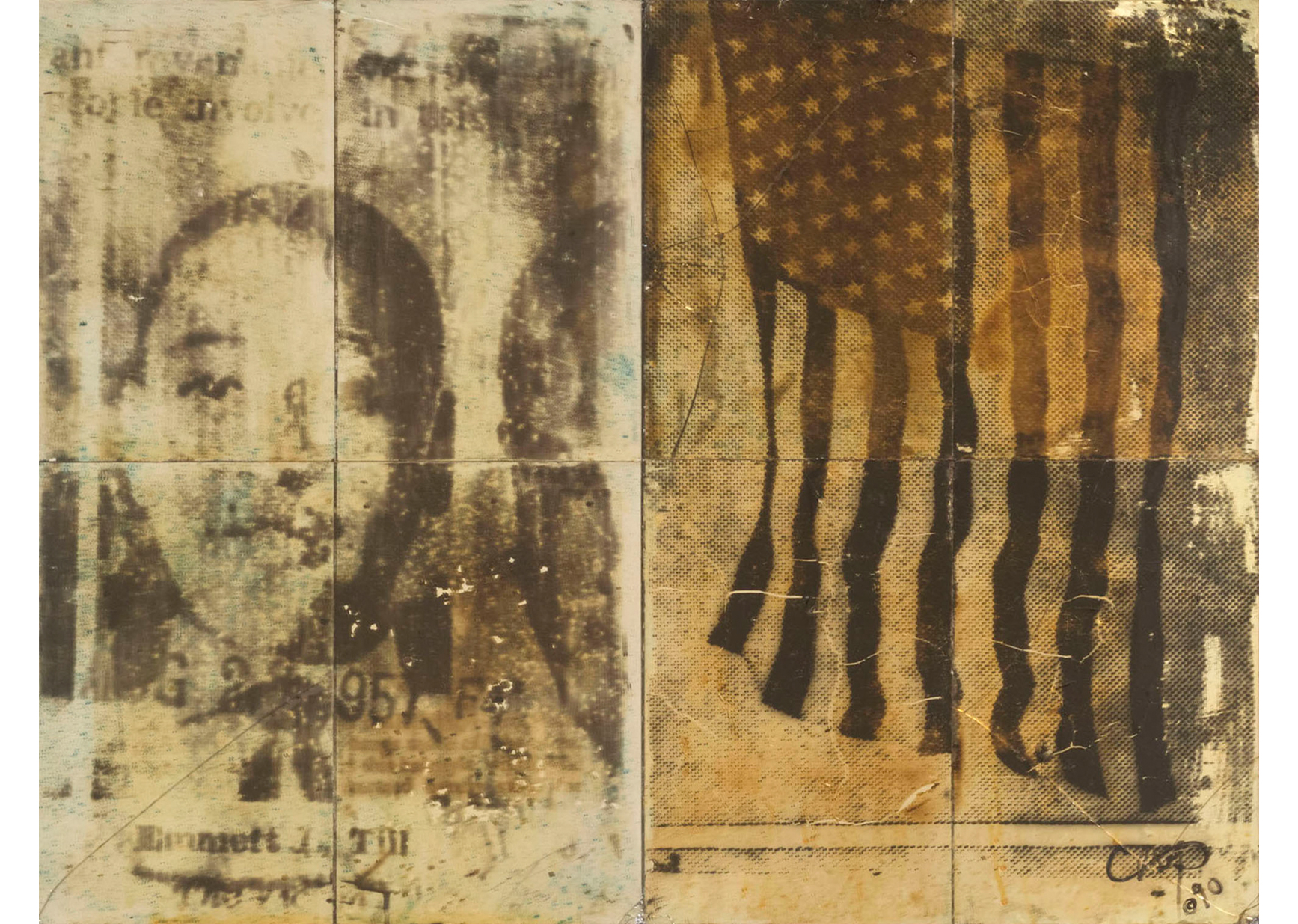Donald Camp vividly recalls reading the news of Emmett Till’s brutal murder in 1955. The artist had also recently celebrated his birthday in the summer of that year, turning 15 to Emmett Till’s 14.
The 14-year-old African American boy from Chicago was visiting his relatives in Mississippi when he was lynched after an accusation that he had whistled at a white woman. In September 1955, an all-white, all male jury found Roy Bryant and J.W. Milam not guilty for his murder. Mamie Till Mobley, Emmett Till’s mother, insisted on an open-casket funeral so that the violent treatment of his body, beaten beyond recognition, would be witnessed by the more than 50,000 people who attended the service. The response to his gruesome murder was one of horror, and as the story was widely shared—through publications like Jet magazine—the fight for civil rights grew in strength.
Camp’s powerful composition, Emmett Till / America 1955, pairs a photograph of Till—taken from a widely circulated portrait with his mother—with an image of the United States flag. Camp created the work by coating the glass panels with a photographic medium and then exposing the plates to the found imagery. The cracks throughout and yellow hue occurred when the artist allowed the material to bake in the sun. The appearance emphasizes the nearness of history, and the reflective nature of the work frames the viewer as an active participant in a critical moment in history. Through the pairing of Till’s youthful image with the flag, Camp invites the consideration of the rights supposedly afforded to American citizens and the severe, and often deadly, injustices that exist in this country.
Emmett Till / America 1955 is on view in the Lynn Herrick Sharp Gallery for Contemporary Art. Find more information about Donald Camp, including other works of art in the Museum’s collection, online.
Image: Emmett Till / America 1955, 1990. Donald Camp (born 1940). Glass mirror with liquid light and sun baked acrylic, 48 × 36 inches. Delaware Art Museum, Acquisition Fund, 2020 © Donald Camp.

